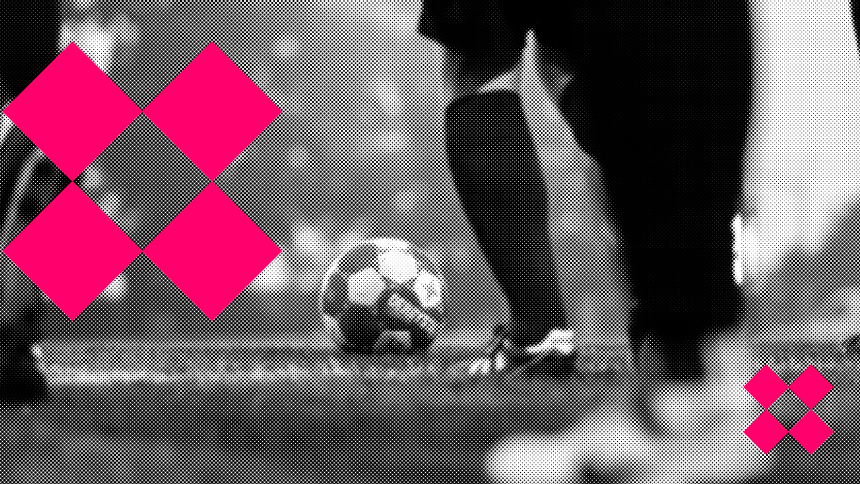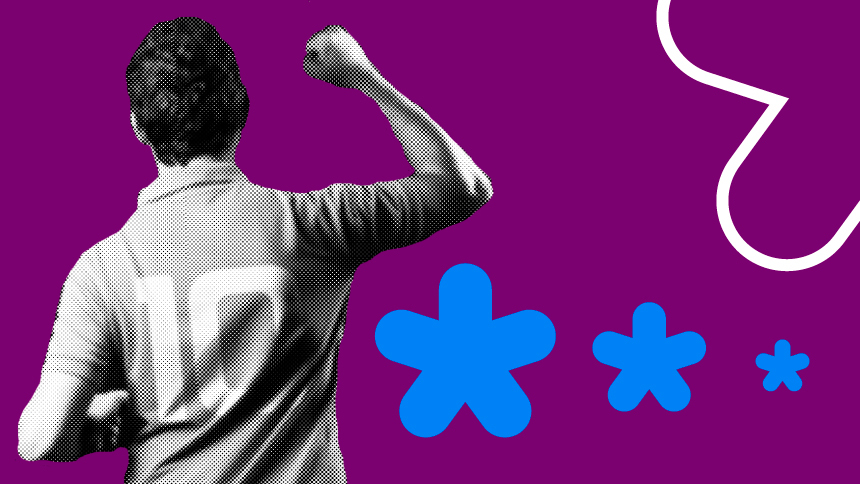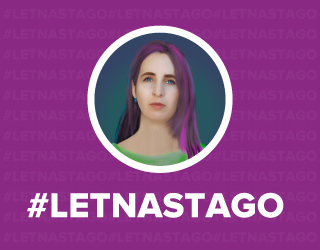
Содержание
Introduction
Human rights violations in Belarus are systemic and large-scale. De facto authorities of the country use repressive methods to suppress dissent, enhance censorship, and limit the fundamental rights and freedoms of those who disagree with the current regime. As of the end of 2024, 6,550 people have been convicted on politically motivated cases, 3,697 people have been recognized as political prisoners, and 1,265 of them remain in in detention.
Sport in the country represents a broader human rights crisis and authoritarian control. De facto Belarusian authorities use sports as a propaganda tool to maintain an image of normality and stability. Representatives of the sports industry also face political persecution. During the analyzed period, grounds for persecution included participation in protest actions as far back as 2020, assistance to so-called “extremist activities”, and other reasons. Moreover, the issue of Belarusian athletes’ admission to international competitions, particularly the Paris Olympics and Paralympics, remained relevant.
We, the FairPlay human rights initiative, engage in research, analytical, educational, and advocacy activities on sports and human rights, including in Belarus. Studying this topic is necessary for better understanding the state of public institutions as a whole. In our material, we have collected the most important news and statistics from the Belarusian sports world in 2024 to analyze the consequences of mass repressions and state control in the sports sphere in Belarus, monitor trends, and formulate recommendations from the perspective of ensuring and protecting human rights.
Persecution of sports industry representatives
Criminal prosecution
In 2024, at least 11 representatives of the sports industry were subjected to criminal prosecution. The reasons included:
- Participation in or support of peaceful protests in 2020
- Insulting government representatives and the president
- Calls for sanctions
- Assistance to “extremist” activities
Some athletes, coaches, and other Belarusian sports representatives were sentenced to up to 6 years of imprisonment and recognized as political prisoners. Many were deprived of the opportunity to pursue their professional activities.
Detentions are often accompanied by forced recording of so-called “repentant” videos. These recordings, made under pressure, contain statements with confessions to allegedly committed offenses, expressions of regret or remorse. Such videos are accompanied by humiliation and insults, and detainees are forced to publicly admit to subscribing to resources deemed extremist, writing comments online, participating in peaceful protest actions, or other actions that de facto country authorities define as illegal. These recordings are organized by the Ministry of Internal Affairs and actively disseminated by pro-government Telegram channels, state media and television. Such forced public humiliations are used to enhance propaganda and establish control.
A “special proceeding” was initiated by the Investigative Committee (hereinafter – IC) against Hennadzi Kapitanov, a Krav Maga instructor. He was charged under 4 Criminal Code articles – inciting hatred (Part 1, Article 130 of the Criminal Code), calls for actions against national security (Part 3, Article 361 of the Criminal Code), insulting a government representative (Article 369 of the Criminal Code), and insulting the president (Part 1, Article 368 of the Criminal Code). Later, Kapitanov was sentenced in absentia to 6 years in a colony.
Aliaksei Mazuka, a member of the Belarusian ship modeling sports team, was convicted for “calls for sanctions” (Part 3 of Article 361 of the Criminal Code). The specific sentence is unknown, but under this article, the athlete faced 4 to 12 years of imprisonment.
Triathlete Valentina Zelenkevich was detained and later sentenced to 2 years of “home chemistry” under Article 342 of the Criminal Code (organizing and preparing actions that grossly violate public order, or active participation in them) after returning to Belarus in spring 2024 for participating in peaceful protests in 2020. Footballer Andrei Salavey was sentenced to 2 years of “home chemistry” under the same article.
Pavel Pashkevich, an event host working at Minsk basketball club matches, was detained over to a photo where he holds a microphone with the inscription “ZYVIE BELARUS”. One pro-government Telegram channel published a “repentant” video in which the host admits to participating in peaceful protests in Minsk in 2020 and sending data about the movement of “security forces” through the “Black Book of Belarus” resource. He was charged under Article 342 of the Criminal Code (restriction of liberty for 2 to 5 years, or imprisonment for up to 4 years), but the court’s decision remains unknown.
A new wave of searches took place ahead of the Coordination Council (CC) elections in the spring of 2024. The Investigative Committee initiated criminal cases against all CC candidates. Among them was Krystsina Tsimanouskaya, an athlete and signatory of an open letter by athletes against violence and for fair elections. As a result, IC officers conducted a search in her parents’ apartment, which Tsimanouskaya later reported on social media.

These events demonstrate massive and systemic human rights violations in Belarus, where authorities use repressive mechanisms to suppress freedom of expression and political activity. Prosecutions, detentions, and prison terms for sports industry representatives threaten not only the right to freedom of speech and peaceful assembly but also the right to safety and protection from degrading treatment. We can also note violations of the right to freely participate in political life, the right to profession and work. These actions, accompanied by violations of legal procedure and justice principles, undermine the foundations of the rule of law and create an atmosphere of fear.
Case of Andrei Hnet
The case of Andrei Hnet, co-founder of the Free Union of Belarusian Athletes (SOS BY) and journalist, who faced extradition from Serbia to Belarus, became one of the most prominent in Belarusian sports in 2024.
Andrei Hnet was detained in late October 2023 in Serbia, as an arrest warrant for “tax evasion” was entered into the Interpol database. Such charges have repeatedly been grounds for detaining future political prisoners in Belarus.
Since the SOS BY organization is recognized as an “extremist formation” in Belarus, Hnet faced up to 7 years of imprisonment. His lawyer filed an appeal against the extradition decision and requested to remove the journalist’s data from the Interpol database. On December 20, 2023, a request for interim measures was submitted to the European Court of Human Rights to suspend the extradition.
The Serbian Appeals Court reviewed the complaint on February 19, 2024, and overturned the extradition decision. The case was sent for reconsideration. Hnet’s health deteriorated in prison. The People’s Anti-Crisis Management (NAU) informed a working group of European Parliament deputies about this. Hnet himself also sent a letter to the court. On June 13, the Supreme Court of Serbia made a decision on extradition, which the journalist announced on social media. According to Hnet, the court found no grounds preventing his extradition. The journalist was under house arrest, and his defenders prepared an appeal against the court’s decision.
Later, the Serbian Appeals Court again overturned the extradition decision, but Hnet remained under arrest. The Belarusian activist’s case was returned to the High Court of Belgrade for a third review. Support actions took place in several countries.
Ultimately, Andrei Hnet was freed and evacuated from Serbia to the EU.
Hnet’s release and prevention of extradition became an example of successful protection of the right to freedom and personal inviolability. This case demonstrated the effectiveness of legal struggle and international solidarity in protecting individual rights and freedoms. Hnet’s extradition could have led to his persecution on political grounds, which would be a clear violation of his right to freedom and personal inviolability, and could have endangered his safety.
Combating “extremism”
After the 2020 presidential elections, which were accompanied by peaceful protests and a new wave of repression against all who disagree with the current regime, the Belarusian government has developed a system where any opinion different from the state’s is labeled as “extremism”.
De facto Belarusian authorities continue to use the vaguely defined legislative concept of “extremism” for political persecution, which athletes face as well. For manifestations of “extremism”, one can encounter either administrative responsibility and receive so-called “24-hour” arrest or criminal punishment with prison terms.
In 2024:
- 5 sports industry representatives were convicted for assisting “extremist” activities
- 7 were added to the list of Belarusian citizens, foreign citizens, and stateless persons involved in extremist activities
- 6 athletes’ social media accounts were recognized as “extremist materials”
The director of the “Smorgon” Children’s and Youth Sports School, Denis Loban’, was sentenced to 7 days of arrest for subscribing to Tribuna.com. In December 2023, the website, social networks, app, and logo of the sports media Tribuna.com were declared “extremist materials” by de facto Belarusian authorities.
Bodybuilder Aliaksandr Sharabaiko, previously sentenced to 1.5 years in a colony for “insulting the president”, was again charged under three Criminal Code articles, including Article 361-1 (creating or participating in an extremist formation). As a result, Sharabaiko was sentenced to 6 years in a colony.
3 years in a colony were given to Aliaksandr Zyankov, a photographer from Borisov who previously photographed FC BATE games. The photographer was convicted under Part 3 of Article 361-1 of the the Criminal Code. According to cellmate information, the charge relates to video recordings posted on an internet resource recognized as extremist.
Table tennis coach Yuriy Lagadzyuk was sentenced to 2 years in a colony for “assisting extremist activities” (Article 361-4 of the Criminal Code). Details of the accusation are unknown.
During his return to Belarus, basketball referee Aliaksandr Siritsa was detained for creating an “extremist” chat (Article 361-1 of the Criminal Code) and “insulting the president” (Article 368 of the Criminal Code). He has been in pre-trial detention for a year.
Football fans were also subjected to repression – a fan from Grodno was detained for “extremist” tattoos, and a FC Shakhtyor fan was reported by neighbors.
Andrei Salavey, Hennadzi Kapitanov, Aliaksei Mazuka, Pavel Pashkevich, Valentina Zelenkevich, Aliaksandr Zyankov, and Yuriy Lagadzyuk were added to the list of Belarusian citizens, foreign citizens, and stateless persons involved in extremist activities.
Instagram accounts of Konstantin Yakovlev, Aleksandra Herasimenya, Elena Leuchanka, Arthur Udris, Katerina Snytsina, and Andrei Hnet were included in the list of “extremist materials”.
Repressions related to “extremism” accusations have become an important part of authoritarian control and a daily practice in Belarus, including in the sports sphere. These actions not only deprive citizens of fundamental rights such as freedom of expression and the right to professional activity but also create an atmosphere of fear and self-censorship, demonstrating the state’s intention to suppress any forms of dissent.
Admission of belarusian athletes to international competitions
Since the start of Russia’s full-scale invasion of Ukraine in February 2022, the issue of Belarusian athletes’ admission to various international competitions has been acute. In 2024, a unified approach for deciding on the admission or non-admission of athletes from Belarus to international competitions had still not been developed and formulated. Some sports organizations give athletes the opportunity to participate in tournaments under their aegis at the highest level, although under different conditions. Others make decisions on complete competition bans, which is a natural response to widespread human rights violations in the country and participation in the war.

The 2024 Olympic and Paralympic Games in Paris became one of the main sporting events of the year.
For the first time since 1984, television broadcasting of the Olympics was canceled in Belarus. The French authorities banned some journalists from Belarus from covering the Olympic Games because of suspicions of espionage.
Belarusian athletes were able to take part in the competitions under a neutral status in some sports. In particular, World Sailing decided to allow Belarusian athletes to compete at the Olympic Games under a neutral status. ITF also announced the admission decision. The selection criteria were aligned with IOS’s neutrality conditions.
In turn, the IOC created a commission, which was engaged in checking the compliance of Belarusian and Russian athletes with the criteria of neutrality. As a result, 17 female athletes from Belarus took part in the competitions. Athletes from Belarus and Russia did not participate in the opening ceremony of the Olympic Games, as they were individual athletes. Also, the medals won by neutral athletes were not reflected in the overall medal standings.
Female athletes competing under neutral status found themselves as if “between two fires” when it was necessary to demonstrate results in competitions, but they also faced criticism from the state. “People without a homeland. And without conscience – athletes who betray. Such went to the Olympics under the white flag of capitulants,” – this is how the representative of the Belarusan propaganda Volha Bondareva expressed the athletes.
The IIHF extended the decision to suspend the national teams of Belarus and Russia for the season 2024/25. This decision also applied to the national team of Belarus with regard to the final Olympic qualifying round. The IIHF Council concluded that the national teams’ participation at this stage is not safe. The IIHF had previously stated that they were concerned about the safety of female athletes, including those from Belarus and Russia, as well as staff and fans. However it was not specified what exactly was a security risk. The IIHF Council “will continue to monitor the situation” and the reintegration of the national teams of Belarus and Russia will be reconsidered in May 2025.
The IBU said they will not lift the ban on Belarus biathletes until the war in Ukraine is over. The IBU competition rules also do not provide for the possibility of athletes_women to participate under a neutral status.
World Aquatics, on the contrary, allowed Belarusian athletes to participate in international competitions in team disciplines (relay races, group synchronized swimming disciplines, synchronized diving). To participate, athletes must confirm their neutral status.
Decisions of international sports organizations, allowing Belarusian athletes to participate in competitions under normal conditions, can be perceived as a form of sportswashing – the use of sports events to improve reputation and create the illusion of international recognition. De facto Belarusian authorities can use such measures to justify their legitimacy and to demonstrate support from the international community, which is unacceptable in the conditions of the country’s participation in Russia’s military aggression against Ukraine and massive violation of human rights in the country.
In our opinion, the decisions of international organizations to allow female athletes from Belarus to participate in international competitions under a neutral status demonstrate the efforts of the world sports community to retain responsibility for participation in military actions, while preserving the real possibility for female athletes to participate in the competitions. These actions serve as a reminder of how sport can become a tool for international pressure and accountability for the actions of states.
Recommendations
In conclusion of our annual analysis of sports and human rights in Belarus in 2024, we have formulated a series of recommendations that could potentially influence the situation and provoke changes.
International pressure
- apply international pressure on the Belarusian government to ensure respect and implementation of fundamental rights and freedoms for Belarusian sports industry representatives (specifically, protecting political prisoners’ rights and their release, stopping political repressions, “repentant video” recordings, pressure, and censorship);
Sanctions
- introduce sanctions against sports organizations and federations, and targeted sanctions against officials in Belarus’s sports sector responsible for human rights violations;
Public solidarity
- express solidarity from international sports organizations, federations, and athletes, and raise awareness about widespread and systematic human rights violations in Belarus;
Legal support
- provide legal assistance and support to athletes facing persecution in Belarus;
Boycotting international competitions
- boycott international sporting events held in Belarus or involving Belarus, to prevent using global sporting events to legitimize the authoritarian regime;
Developing unified criteria
- international sports organizations should continue working on developing clear and fair criteria for admitting Belarusian athletes;
Civil society support
- strengthen support for Belarusian civil society organizations and initiatives working at the intersection of human rights and sports to expand their capabilities and facilitate internal changes;
Media coverage
- continuously cover human rights violations in Belarus in media, including those targeting athletes, to keep the international community informed and engaged;
Long-term engagement
- recognize that resolving human rights violations in Belarus will require ongoing commitment and engagement from the international community.
Following the new wave of repression after the 2020 presidential elections, which led to widespread and unprecedented human rights violations, and Belarus’s involvement in Russia’s war against Ukraine, we believe that dialogue and negotiations with Belarusian state institutions are ineffective and impossible.

